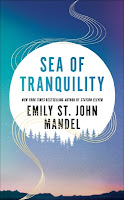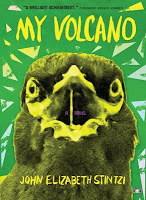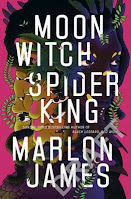|
Grove: A field novel by Esther Kinsky (translated by Caroline Schmidt) {Reviewed by THOMAS}
“Absence is inconceivable, as long as there is presence. For the bereaved, the world is defined by absence,” she wrote. She went to Olevano, some distance from Rome, in the hills, in the winter, two months after her partner died, the bereavement was taking hold, she no longer fitted into her life. It was winter, as I said, she stayed alone in Olevano, she looked out of the window, she went for walks, she took photographs, she wrote. The whole place, and the text she wrote, was cold, damp, dim, filled with mist, vagueness, echoes, mishearings. Well, of course. This is not to say that her observations were not precise, preternaturally precise, and the sentences she wrote to describe them, they too were preternaturally precise, whatever that means. “In the unfamiliar landscape I learned to read the spatial shifts that come along with changes to the incidence of light.” She is unable to think of the one who is lost, rather, the one she has lost, she is unable to face an absence that at this time is an overwhelming absence, instead she observes in minute detail, with great subtlety, as if subtlety could be anything but great, the particulars of the day and the season, the fall of light, those things that only she could notice, or only a bereaved person could notice, the weight of noticing shifted by her bereavement, death pulling at everything and changing its shape, changing the fall of light, even, or making her aware of changes in the fall of light, and in the shape of everything, so to call it, that are inaccessible to the non-bereaved. There are other worlds, but they are all in this one, wrote Paul Éluard, apropos of something, if it was him who wrote it, and if that was what he wrote, if these are different things, but as we can cope with the world only by suppressing almost everything that comes at us, even at best, we notice only as our circumstances allow, our mental circumstances, our emotional circumstances perhaps most significantly, and we are somehow sharing space but seeing everything differently from others and some more differently than others. We live in different worlds in the same world. She was bereaved, she saw what she saw, observed what she observed, with great precision and intensity as I have said, out of the mist, among the fallen leaves. There is a cemetery in every town, or vice-versa, she visits them all, acquaints herself with the faces of the dead, but not her dead, not the one of whom she is bereaved. She writes of herself in a continuous past, “I would.” she writes, “Each morning I went,” she writes, as if also all that is observed also continues in this continuous and unbordered way, which might be so. Death, first of all, is an aberration of time, bereavement acts on time like a point of infinite gravity that cannot be observed but which bends all else. Memories are the property of death, there can be no memories if she is to face each day, though the memories pluck at her in her dreams. She observes, she wanders, she acts on nothing, she changes nothing, the season moves slowly through darkness and chill. She travels to the nearby towns and into the hills, the mists. She recognises herself more in those displaced like her to Italy, the migrants and the refugees, those for whom no easy place welcomes them, those who have lost something, recently, that the others around there have perhaps not recently lost. “We sized each other up as actors on a stage of foreignness,” she writes, “Each concerned with his own fragmented role, whose significance for the entire play, directed from an unknown place, might never come to light.” She is aware, everywhere, of the loss that outlines and gives shape to that which goes on, and the mechanisms of loss that are built into the function of a whole town, or a whole human life. She sees the junkyard by the bus station, “an intermediate space for the partially discarded, whose time for final absence has nevertheless not yet arrived.” She visits the Etruscan tombs and sees the reliefs there as a membrane separating the living from the dead, their loss is one of space as well as of time, what is shared between her and them is two dimensional only, “as if the dead would know how to reach through the cool thickness of the masonry to touch the object’s or animal’s other side, invisible to us, and hold it in their life-averted hands.” The membrane is infinitely thin. It is only two dimensions. It is everywhere. She asks, “Will it wither away, the hand I pull back from the morti?” Time passes. Something unobserved is changing beneath the changes she observes, “the Spring air a different shade of blue-gray.” She leaves Olevano and leaves the first section of the book. Because she, we, you, I perceive only a fraction of what we could call the external, the fraction to which we are at a moment attuned, it is easy to fall out of tune with others. For her, whom bereavement has differently attuned, or untuned, her reattunement must be achieved by words, she who lives by words must recalibrate her world through words, descriptions, care, precision, nuance, it is wrong to think of nuance as somehow imprecise, it, all this, is an exercise in slowness, and we who read must also change our speed to the speed of her noticing if we are to experience the text, if we are to experience, through the wonder of her text, somehow, her experience, or something thereof. The external reveals itself only to those moving at the precise right speed of perception, so she shows us, and so too her text reveals itself only to those moving at the precise right speed, those who read the text at the speed the text requires. In the second section she remembers, memory being the province of death, or vice-versa, her father, of whom she has also been bereaved, a little longer ago, and the holidays in Italy of her childhood, with him, and, presumably, with her mother, though this section deals specifically with memories of her father, perhaps because her mother is still alive, if she is still alive. This section is the section of the father, of the memories of the father more particularly, the only way her father now exists, he has finished contributing to memories that might be had of him and fairly soon these memories become the memories of memories, the parts magnified becoming still more magnified, the other parts abraded, becoming lost. Each memory contains a necropolis, it seems. With nothing, she begins the third and final section. She rents a cottage, so to call it, in the delta of the Po. Marshes, salt pans, mists again, fogs, rains. Birds. It is winter. “Everything had been repeatedly disturbed, was forever suspended between traces and effacement.” All that is human, and all of nature is abraded. “It was even hot when I arrived, the air similarly gray and viscous, and the landscape lay motionless, disintegrating under its weight; on hillcrests and in the occasionally visible strips of riverbank clung fragments of memory that had been torn away from a larger picture and settled there.” Time moves differently, again, here, she lets it, broken things stand about, the past is forgotten but is everywhere, is in the dust and mud, more often mud, the rain, the fog. “It was a place that could only be found in its absence, by recalling what was lost, therein lay its reality.” But here in this slow nowhere something almost unperceived begins to change, the emptiness provides a space, the past gets somehow out of her, death begins not to completely overwhelm her, memory relinquishes something of its choke. She even gets a ride to town with the owner of the cottage, in his car. Perhaps she comes to think that history is the proper province of the past. “Among the places of the living are the places of the dead,” she says, and not vice-versa nor one inside the other. She visits Ravenna and in Ravenna the two mosaics spoken of to her by her father not long before his death, actually the last time she saw him before his death. The mosaics are now outside her, sensed, and no longer trapped inside, her father’s experience of the two blue mosaics likewise no longer trapped, the experience of her father, something of a connoisseur of blue, no longer confined inside the one who is bereaved, the bearer of his memory, but somehow shared with her. These two mosaics, I wonder, for her, also a connoisseur of blue, are, perhaps, the mosaic of life and the mosaic of death. “These two mosaics — the dark-blue, bordered harbour with its still unsteady boats; and the light-blue expanse with no obstruction, nothing nameable, not even a horizon.” |











































































































